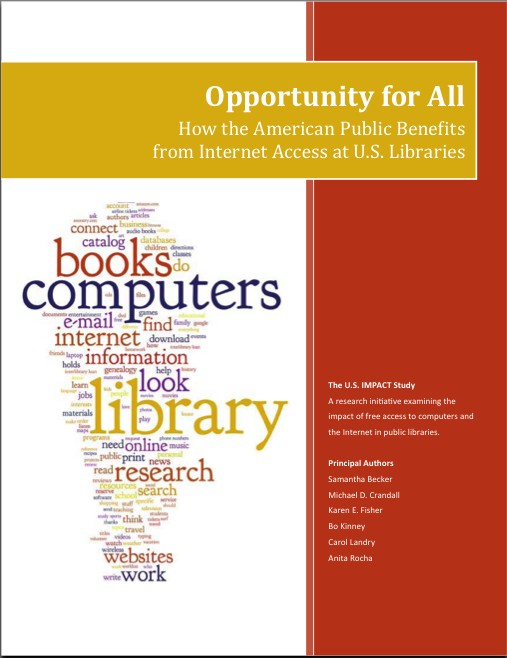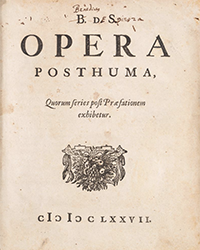-
Rare Book Hub is now mobile-friendly! -
Old World Auctions (June 18): Lot 567. One of the Earliest & Most Desirable Printed Maps of Arabia - by Holle/Germanus (1482) Est. $55,000 - $65,000Old World Auctions (June 18): Lot 681. Zatta's Complete Atlas with 218 Maps in Full Contemporary Color (1779) Est. $27,500 - $35,000Old World Auctions (June 18): Lot 347. MacDonald Gill's Landmark "Wonderground Map" of London (1914) Est. $1,800 - $2,100Old World Auctions (June 18): Lot 1. Fries' "Modern" World Map with Portraits of Five Kings (1525) Est. $4,000 - $4,750Old World Auctions (June 18): Lot 539. Ortelius' Superb, Decorative Map of Cyprus in Full Contemporary Color (1573) Est. $1,100 - $1,400Old World Auctions (June 18): Lot 51. Mercator's Foundation Map for the Americas in Full Contemporary Color (1630) Est. $3,250 - $4,000Old World Auctions (June 18): Lot 667. Manuscript Bible Leaf with Image of Mary and Baby Jesus (1450) Est. $1,900 - $2,200Old World Auctions (June 18): Lot 226. "A Powerful Example of Color Used to Make a Point" (1895) Est. $400 - $600Old World Auctions (June 18): Lot 290. One of the Most Decorative Early Maps of South America - from Linschoten's "Itinerario" (1596) Est. $7,000 - $8,500Old World Auctions (June 18): Lot 62. Coronelli's Influential Map of North America with the Island of California (1688) Est. $10,000 - $12,000Old World Auctions (June 18): Lot 589. The First European-Printed Map of China - by Ortelius (1584) Est. $4,000 - $5,000
-
Forum Auctions
A Sixth Selection of 16th and 17th Century English Books from the Fox Pointe Manor Library
19th June 2025Forum, June 19: Euclid. The Elements of Geometrie, first edition in English of the first complete translation, [1570]. £20,000 to £30,000.Forum, June 19: Nicolay (Nicolas de). The Navigations, peregrinations and voyages, made into Turkie, first edition in English, 1585. £10,000 to £15,000.Forum, June 19: Shakespeare source book.- Montemayor (Jorge de). Diana of George of Montemayor, first edition in English, 1598. £6,000 to £8,000.Forum, June 19: Livius (Titus). The Romane Historie, first edition in English, translated by Philemon Holland, Adam Islip, 1600. £6,000 to £8,000.Forum Auctions
A Sixth Selection of 16th and 17th Century English Books from the Fox Pointe Manor Library
19th June 2025Forum, June 19: Robert Molesworth's copy.- Montaigne (Michel de). The Essayes Or Morall, Politike and Millitarie Discourses, first edition in English, 1603. £10,000 to £15,000.Forum, June 19: Shakespeare (William). The Tempest [&] The Two Gentlemen of Verona, from the Second Folio, [Printed by Thomas Cotes], 1632. £4,000 to £6,000.Forum, June 19: Boyle (Robert). Medicina Hydrostatica: or, Hydrostaticks Applyed to the Materia Medica, first edition, for Samuel Smith, 1690. £2,500 to £3,500.Forum, June 19: Locke (John). An Essay Concerning Humane Understanding in Four Books, first edition, second issue, 1690. £8,00 to £12,000. -
Sotheby’s
New York Book Week
12-26 JuneSotheby’s, June 25: Theocritus. Theocriti Eclogae triginta, Venice, Aldo Manuzio, February 1495/1496. 220,000 - 280,000 USDSotheby’s, June 26: Fitzgerald, F. Scott. The Great Gatsby, 1925. 40,000 - 60,000 USDSotheby’s, June 26: Blake, William. Songs of Innocence and of Experience, Printed ca. 1381-1832. 400,000 - 600,000 USDSotheby’s, June 26: Lincoln, Abraham. Thirteenth Amendment, signed by Abraham Lincoln. 8,000,000 - 12,000,000 USDSotheby’s, June 26: Galieli, Galileo. First Edition of the Foundation of Modern Astronomy, 1610. 300,000 - 400,000 USD
Rare Book Monthly
Articles - October - 2010 Issue
Libraries: <i>The Rumors of My Death have been Greatly Exaggerated</i>
By Michael Stillman
Libraries would appear to be a threatened species, if you read the news. A 24-hour vigil was recently held at City Hall in Newark, New Jersey, to protest the closing of two branches and seriously reduced hours at others. Downstate in Camden, officials were debating whether to close one of their two remaining branches. Services in Long Beach, California, were recently spared reductions only after private contributions were offered, but libraries in Oregon that were severely cut after the loss of timber production revenues a few year back are again under assault. In Pasco County, Florida (Dade City), one branch was saved by reducing hours at the others.
Two factors have come into play to make this a difficult time for these cultural and educational institutions that thrived for a century in America after Andrew Carnegie made it his goal to cover the nation with local libraries. One is the difficult economic times that have impacted some of us financially, and others, still employed but fearful, psychologically. If the President, his economic advisers, Congress and the Federal Reserve are all struggling to rectify this situation, there's not much librarians can do to solve it.
The other factor is public perception of libraries as outdated, unused repositories of old technology. These are perceptions held primarily by those who don't use libraries. The reality is that while some may be dragging their feet, there are major changes going on in most libraries. Like us, they are feeling their way into the new world of technology, and their role in providing us with information, education, and entertainment is as crucial for many today as it was in Carnegie's time. Surviving this period of budget cuts is critical as libraries, which not long ago had all of the attributes of dinosaurs, are reviving their essential roles in the life of our communities.
Libraries around the nation have been making use of grants funded through the Library Services and Technology Act, passed in 1996, to upgrade their services to better serve people in the digital age. This act replaced an earlier one that had been focused more on providing aid for construction of physical space. In Georgetown County, South Carolina, the local library made use of these funds to purchase Kindle electronic readers. They bought 25 of them, which people can use at the library to read books (the Kindles are not available for check out). While that may not sound entirely convenient, the program is enabling people to learn how to use these devices. Additionally, with Georgetown being a rural and not wealthy county, many of its residents are not in a position to buy electronic readers or the books to be downloaded on them.
In Hartford, a grant is being used by the library to offer instruction in art and writing for people aged 55 and up. This may not be high technology, but it is drawing people into the library by offering services not likely to be found elsewhere. The Sayre Public Library in Pennsylvania is using these funds to offer computer instruction to people middle aged and up. In Carson City, Nevada, they used grant funds to purchase a radio frequency check out system. It has freed up personnel who used to check out books by hand to provide more help to patrons, and allowed the library to extend its hours, even with fewer employees. In Sevier County, Tennessee, grant funds were used to provide video gaming. That may not sound like a literary use, but it is bringing young people into the library, and by offering games suitable for intergenerational use, it may help bring diverse age groups together. The list goes on...


















![<b>Forum, June 19:</b> Euclid. <i>The Elements of Geometrie,</i> first edition in English of the first complete translation, [1570]. £20,000 to £30,000. Forum, June 19: Euclid. The Elements of Geometrie, first edition in English of the first complete translation, [1570]. £20,000 to £30,000.](https://ae-files.s3.amazonaws.com/AdvertisementPhotos/dbc5286a-4210-44e3-bbf0-6031c1c49801.png)





![<b>Forum, June 19:</b> Shakespeare (William). <i>The Tempest</i> [&] <i>The Two Gentlemen of Verona,</i> from the <i>Second Folio,</i> [Printed by Thomas Cotes], 1632. £4,000 to £6,000. Forum, June 19: Shakespeare (William). The Tempest [&] The Two Gentlemen of Verona, from the Second Folio, [Printed by Thomas Cotes], 1632. £4,000 to £6,000.](https://ae-files.s3.amazonaws.com/AdvertisementPhotos/655b361c-71c7-48ba-9455-09c14e8c7494.png)











































![<b>Finarte, June 24-25:</b> ALIGHIERI, DANTE. <i>La Commedia [Commento di Christophorus Landinus]. Aggiunta: Marsilius Ficinus, Ad Dantem gratulatio [in latino e Italiano],</i> 1487. €40,000 to €60,000. Finarte, June 24-25: ALIGHIERI, DANTE. La Commedia [Commento di Christophorus Landinus]. Aggiunta: Marsilius Ficinus, Ad Dantem gratulatio [in latino e Italiano], 1487. €40,000 to €60,000.](https://ae-files.s3.amazonaws.com/AdvertisementPhotos/4ee20109-25f3-42e8-93ab-bd4c8e17093a.png)


![<b>Finarte, June 24-25:</b> BANDELLO, MATTEO. <i>La prima [-quarta] parte de le nouelle del Bandello,</i> 1554. €7,000 to €9,000. Finarte, June 24-25: BANDELLO, MATTEO. La prima [-quarta] parte de le nouelle del Bandello, 1554. €7,000 to €9,000.](https://ae-files.s3.amazonaws.com/AdvertisementPhotos/5adfdf34-8a9a-47e5-9288-5e65dac5ce79.png)



![<b>Finarte, June 24-25:</b> FESTE - COPPOLA, GIOVANNI CARLO. <i>Le nozze degli Dei, favola [...] rappresentata in musica in Firenze…,</i> 1637. €6,000 to €8,000. Finarte, June 24-25: FESTE - COPPOLA, GIOVANNI CARLO. Le nozze degli Dei, favola [...] rappresentata in musica in Firenze…, 1637. €6,000 to €8,000.](https://ae-files.s3.amazonaws.com/AdvertisementPhotos/9a1b8605-a566-4fb7-8a4c-5fb72ac539bc.png)





















